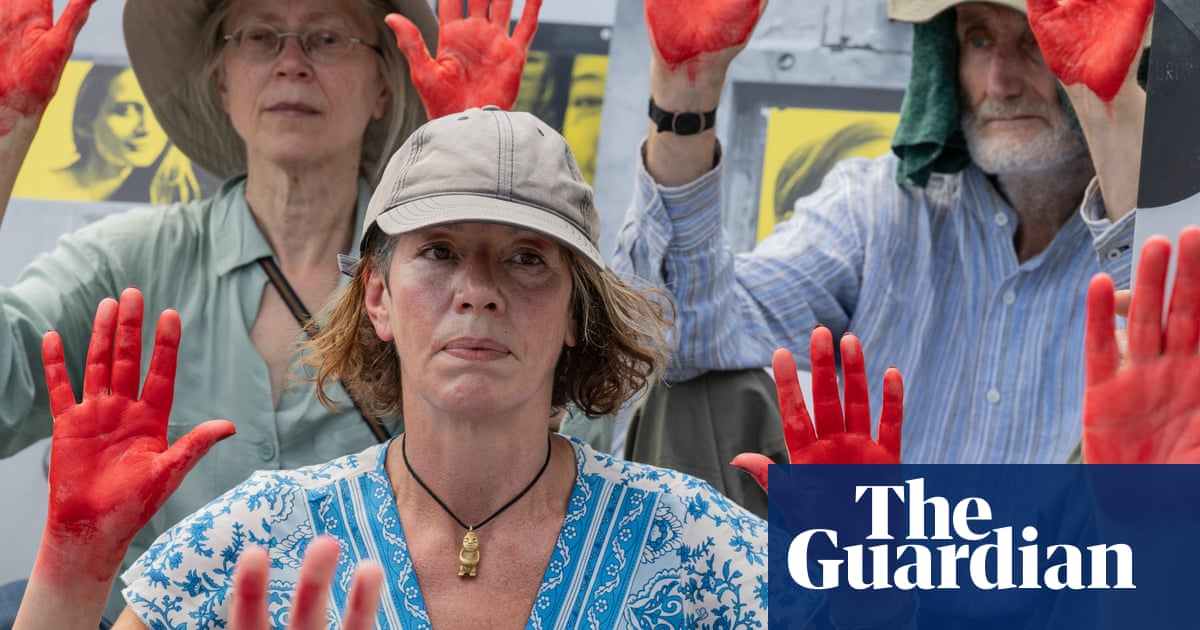In 1983, along with thousands of other women, I cut down sections of the fence around RAF Greenham Common, which was to house nuclear weapons in the form of cruise missiles (Greenham Common women urge new generation to ‘rise up’ against nuclear threat, 27 July).
Arrested and fined £50 for criminal damage, I was jailed for a couple of weeks for refusing to pay the fine. After the missiles arrived in 1984, I joined Cruisewatch actions, which, by obstructing the convoys on the road and throwing paintballs at them, prevented any missile deployment exercises taking place in secret. Again the charges were not severe. Arrested on Salisbury Plain on one occasion, my friends and I were released without charge. Women who did more than £10,000 worth of damage by painting the Blackbird spy plane in 1983 also had their charges dropped.
This week, if the home secretary, Yvette Cooper, has her way, those committing similar kinds of criminal damage could face 14 years in jail for “terrorism” (Free speech target or terrorist gang? The inside story of Palestine Action – and the plan to ban it, 28 June). Yet nonviolent civil disobedience works. In 2004, Mikhail Gorbachev said he attended the 1986 Reykjavik summit because he was confident that “the Greenham Common women and the peace movements of Europe […]would not let America take advantage if we took this step forward”. That step led to a 1987 treaty removing tactical nuclear weapons, including cruise missiles, from Europe.
Keir Starmer plans once again to deploy tactical nuclear weapons, under US government control, on British soil andmass protests are already planned. As the Guardian pointed out in its excellent editorial on Palestine Action (23 June), Starmer might think that “redefining visible dissent as a national security threat is a way to contain public anger”, but it is unlikely to make it go away.
On the contrary, Margaret Thatcher’s government appeared to recognise that increased repression of “eccentric” women might actually increase popular support for a cause. Perhaps he could learn something.Dr Lynne JonesMousehole, Cornwall
My daughter is in prison awaiting trial in relation to direct action against an Israeli‑owned weapons company last summer by Palestine Action. I am reeling at the news thatYvette Cooperis planning to add the group to the terror list. This is hypocrisy of the highest order. My daughter joined Palestine Action because she saw her government breaking international humanitarian law by partnering in Israel’s genocide, including supplying weapons, and she saw that all the marches she attended and petitions she signed were roundly ignored.
If Palestine Action is criminalised, so will all the people be who provide support without taking direct action themselves. Palestine Action volunteers give my daughter invaluable emotional and practical support. They visit her in prison, speak to her on the phone, write her letters and send her money and books. Will they be forced to stop, or face prison themselves?
People of conscience are not terrorists or criminals. That label belongs to a government that is arming regimes, committing crimes against humanity, and crushing anyone at home who opposes these illegal acts. I think the wrong people are in prison.Name and address supplied
I wholeheartedly agree with Juliet Stevenson’s article (Palestine Action spraying paint is not terrorism. As ministers abuse their powers, I feel a duty to speak out, 30 June). I wonder whether Yvette Cooper would be where she is today without the often extreme actions of the suffragettes.Claire JauffretWimbledon, London
Sally Rooney’s brilliant defence of Palestine Action deserves wide support (Israel kills innocent Palestinians. Activists spray-paint a plane. Guess which the UK government calls terrorism, 22 June). If it is indeed made a proscribed organisation, I urge admirers of its non-violent protest to express their approval of the group in public at every opportunity. Let the police arrest all of us, send us to trial. If we believe in freedom of speech, the least we can do is to reconcile ourselves to the possibility of incarceration for the sake of that hard-won right.
It is our right to express approval of non-violent direct action against cooperation with those who commit war crimes. If courts and prisons are clogged and overflowing as a result, the government will soon get the message not to mess with reasonable dissent.Rev Graham MurphyLiverpool
Have an opinion on anything you’ve read in the Guardian today? Pleaseemailus your letter and it will be considered for publication in ourletterssection.
